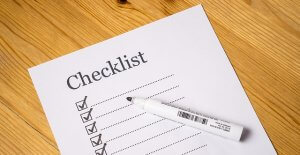There are two main reasons to focus on time management when you transition into your residency program. The first is to decrease your chance of burnout, and the second is to deliver higher-quality patient care. Time management can improve both of these challenges.
Medical students are often ill-equipped in time management skills to successfully negotiate their busy environment during postgraduate year one (PGY1). Up until now, you’ve been focusing on knowledge and skill acquisition over individual time or work-life balance. You may be thinking you can pull through and think about time management after residency, but lack of time management skills will decrease your productivity and your continued education. If you don’t start working on it now, time management problems can be a contributor to professional failure.
How to Get Started with Time Management
The first thing you must do when starting to practice better time management is to change your attitude. You must be willing to take the steps necessary to manage time, which means investing some time in yourself. There are steps, like making lists and writing goals, that take time in order to make time, and you have to see these actions as having worth. Prioritizing time management is the solution to professional and personal limitations.
Secondly, stop thinking about your limitations as too many things to do and too little time. It is about your activities and your results, not about how many hours there are in a day. Focusing on getting things done and prioritizing those things increases productivity.

Steps to Time Management
- Identify and prioritize current tasks: This means writing down a to-do list and identifying what needs to be accomplished, what should be accomplished, and what could be delayed. The more detail you put into this list, the more effective your time management will be.
- Set goals: Before you go about analyzing your current tasks, identify or set goals for what you need to accomplish. This includes work-life balance. What is important in your personal life? Is it time with friends or time spent doing a hobby? Is it family? Is it connecting with nature? Make sure you include yourself in your goals, not just your residency and professional goals.
- Track yourcurrent time expenditures: Be honest when you do this. How much time did you spend on social media? How much time did you spend dragging your feet to get to the hospital when you could have arrived early? Time management is about looking for those morsels of time that are wasted every day and turning those into productive times. Part of productive time is relaxation, but it is often replaced with distraction.
- Consider behavior: Many physicians report that interruptions are a big time challenge in the medical profession. A behavior as simple as closing your office door or silencing app notifications on your phone can increase productivity. Don’t let yourself be that person that doesn’t have time to use the bathroom. It doesn’t result in beneficial outcomes in the long-run.
- Manage Your Schedule and Behavior: Of course, the duty to patient care gets in the way of time management, as it should. The challenges of the human body are unforeseeable, but prioritization of your schedule combined with the elimination of time-wasting behaviors makes room for the challenges of variable schedules and unexpected changes.
- Don’t try to multi-task: Nobody can multi-task efficiently. Studies show that multi-tasking actually results in a loss of productivity (possibly around 40%). It also increases the chance for errors and increases mental fatigue. Instead of multi-tasking, focus on one task at a time. If you have to break up your attention into 30 or 60 minute segments, that is fine. Those segments will be much more productive.
Time management capabilities are a huge indicator of job satisfaction in the medical field. Being satisfied in your career prevents burnout. Therefore, if you want to be successful in your medical career, you must invest in yourself by engaging in time management efforts.

Other Recommendations from Residents and Physicians:
- Make to-do lists
- Set goals
- Be part of the team
- Network
- Ask for help early
- Establish a handover system for patients
- Avoid procrastination
- Learn your IT system
- Say no when necessary
As you can see, preparation is half of the battle when it comes to time management. A good support system along with some attention to the baseline knowledge you need to function in a facility can go a long ways toward minimizing time spent on overwhelming jobs such as bureaucratic tasks that must occur alongside patient care. Additionally, making sure you have a network of support on a personal and professional level helps to maintain connections and make sure you have a life outside of your profession. Many consider the medical field to be a lifestyle, and in many ways it is, but there is still room for your own personal lifestyle if you manage your time effectively.



